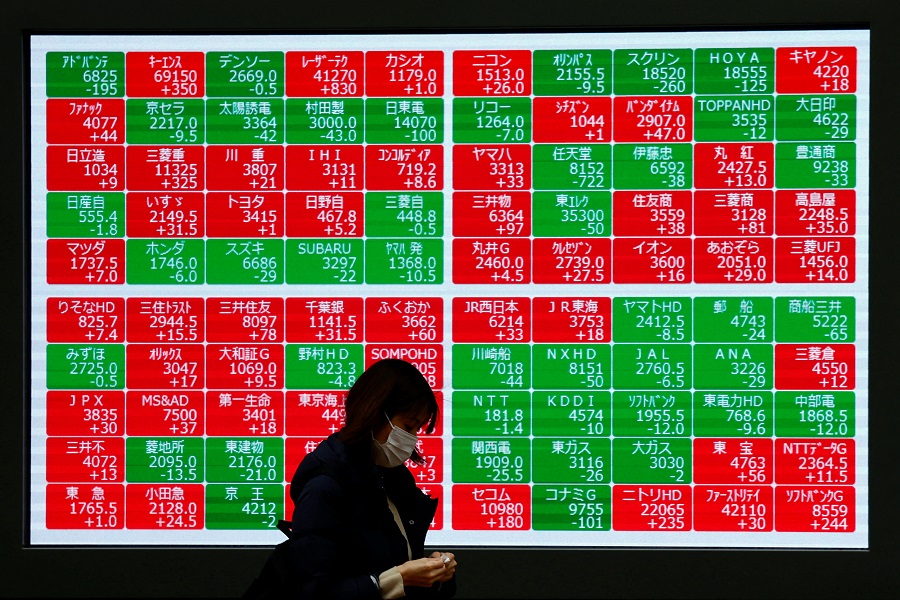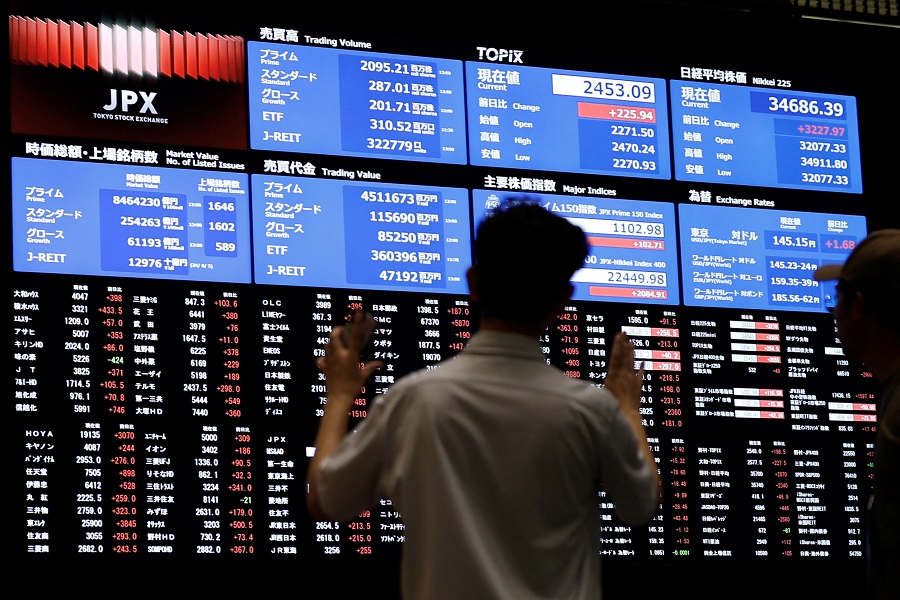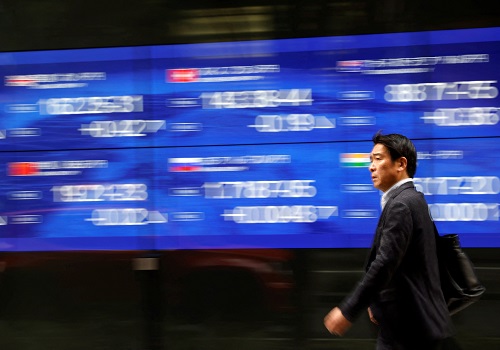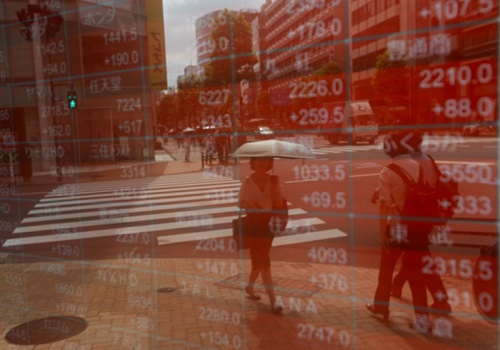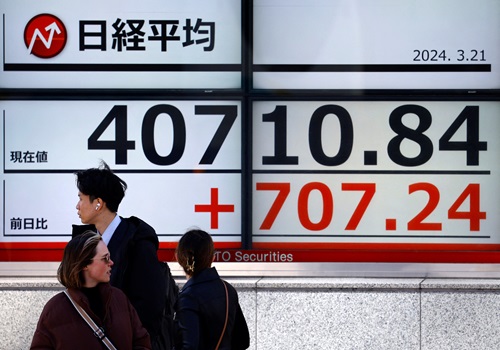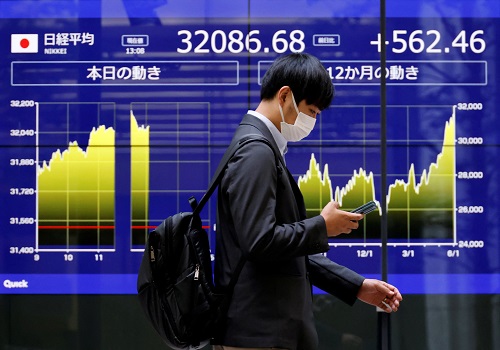Stocks head for weekly loss as US election nerves mount
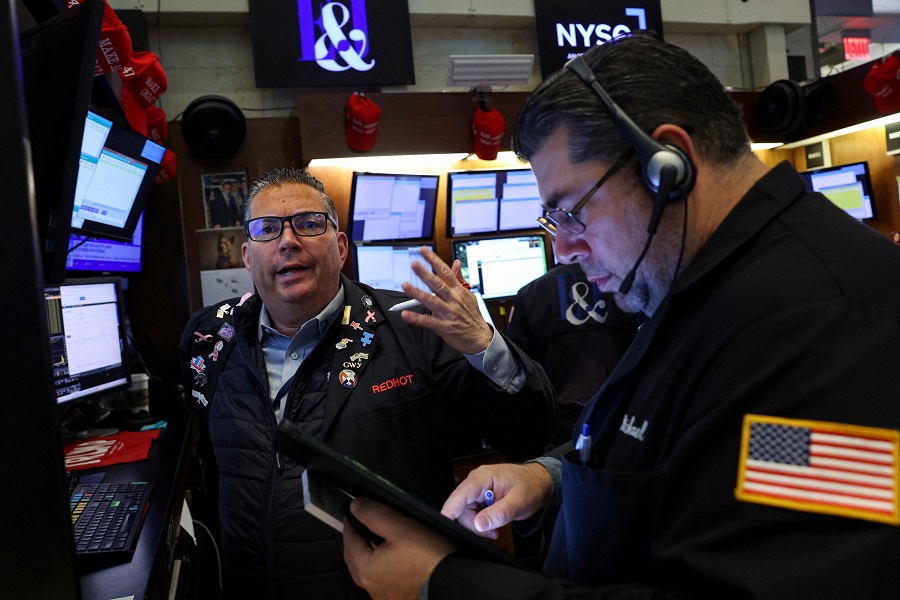
Follow us Now on Telegram ! Get daily 10 - 12 important updates on Business, Finance and Investment. Join our Telegram Channel
Global stocks were set to end the week lower as looming U.S data and Japan's weekend election curbed a rally already knocked off course by the close-run race for the White House and expectations the Federal Reserve will resist rapid rate cuts.
MSCI's broad world equity index was steady on the day but heading for a 1.2% slide on the week.
U.S. Treasuries drew buyers on Friday but still headed for a sixth straight weekly loss, futures tipped Wall Street's S&P 500 for mild gains later in the day, European shares flatlined, and the dollar held near three-month highs.
A parade of pivotal events for markets is about to start, with Japan's parliamentary election on Sunday and the keenly-watched monthly U.S. payrolls report on Friday.
Earnings are also due from tech mega-caps Alphabet, Amazon, Apple, Meta and Microsoft. The U.S. presidential election follows on Nov. 5, with a Fed rate decision two days later.
Markets have tilted towards Donald Trump returning to the White House, driving Wall Street stocks to record highs earlier this month on bets that business tax cuts would shield the economy from additional inflation triggered by his proposed import tariff hikes.
But with the Republican candidate Trump and Democrat Vice President Kamala Harris neck-and-neck in crucial swing states, investors are anxious about a contested result roiling world markets and unleashing fresh geopolitical uncertainty.
"I think we might have two or three months of maximum uncertainty and social risk. And the markets would not like that at all," said Carmignac chief economist for cross-asset Raphael Gallardo.
Britain's 10-year gilt yield, at 4.227%, is up 17 basis points this week amid fears of disorderly moves around the Oct. 30 budget, where finance minister Rachel Reeves has hinted she may loosen debt rules to increase borrowing.
VOLATILITY
Various gauges of market caution have risen this week, with the index of bond market volatility close to its highest point in a year while a measure of anticipated euro volatility hit an 18-month high on Thursday.
Gold slipped 0.7% on Friday to $2,718 per ounce after haven-buying drove it to a record on Wednesday.
Ahead of the Nov. 1 monthly payrolls report that Fed-watchers scrutinise for monthly policy clues, data overnight showed an unexpected drop in weekly applications for U.S. unemployment aid.
The Fed cut borrowing costs by 50 bps in September in its first such move since 2020, but money markets have dropped earlier bets for another jumbo move next month, with most traders anticipating a quarter point reduction instead.
The yield on the 10-year U.S. Treasury, which moves inversely to the price of the debt instrument and sets the tone for debt costs worldwide, stood at 4.202% on Friday after it touched a three-month top of 4.26% on Wednesday.
The dollar index, which measures the currency against major peers, was little changed at 104.03 after hitting a three-month peak on Wednesday.
The euro was flat at $1.0823 on Friday, down sharply from about $1.12 a month ago. Sterling, at $1.298, has swooned almost 3% lower this month.
EYES ON JAPAN
Polls suggest Japan's ruling Liberal Democratic Party, which wants the BoJ to raise ultra-low interest rates, may lose its majority and need to enter coalition with opposition parties who back continued monetary stimulus.
Japan's Topix dropped 0.7% on Friday and the yen was steady at 151.87 per dollar after Japanese officials warned speculators off betting against the currency, which has weakened rapidly from around 141 in mid-September.
Elsewhere in Asia, Hong Kong's Hang Seng rose 0.5% and mainland Chinese shares added 0.7%.
Brent crude futures added 0.7% to $74.90 a barrel.












 320-x-100_uti_gold.jpg" alt="Advertisement">
320-x-100_uti_gold.jpg" alt="Advertisement">





